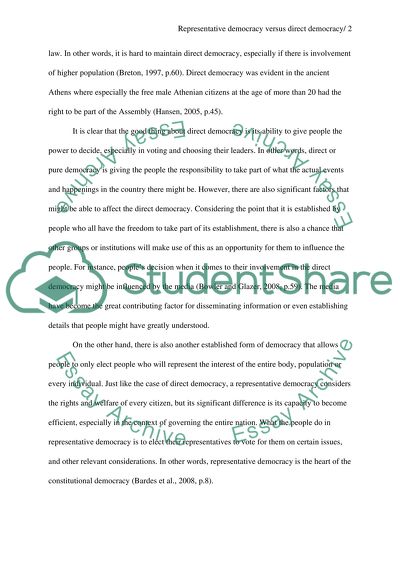Cite this document
(“Representative and Direct Democracy Essay Example | Topics and Well Written Essays - 1000 words”, n.d.)
Retrieved from https://studentshare.org/history/1629742-how-does-representative-democracy-differ-from-direct-democracy-which-is-superior-and-why
Retrieved from https://studentshare.org/history/1629742-how-does-representative-democracy-differ-from-direct-democracy-which-is-superior-and-why
(Representative and Direct Democracy Essay Example | Topics and Well Written Essays - 1000 Words)
https://studentshare.org/history/1629742-how-does-representative-democracy-differ-from-direct-democracy-which-is-superior-and-why.
https://studentshare.org/history/1629742-how-does-representative-democracy-differ-from-direct-democracy-which-is-superior-and-why.
“Representative and Direct Democracy Essay Example | Topics and Well Written Essays - 1000 Words”, n.d. https://studentshare.org/history/1629742-how-does-representative-democracy-differ-from-direct-democracy-which-is-superior-and-why.


